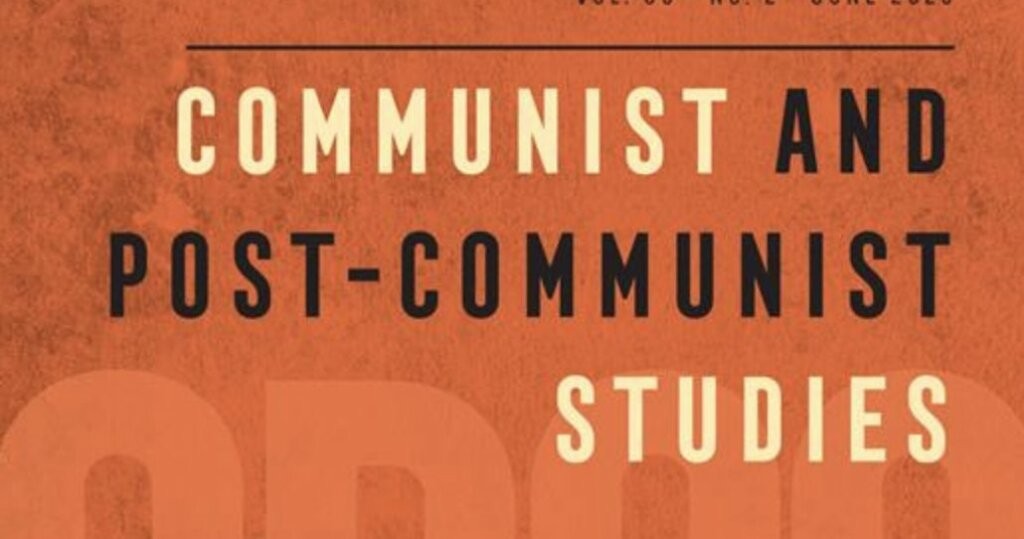15 Results

A Q&A with CPCS Associate Editor Paulina Pospieszna
Nov 26 2024
It’s a crucial time to be researching these topics, and I look forward to contributing to the understanding of how deliberative democracy can shape the region’s future.

A Q&A with Communist and Post-Communist Studies Associate Editor Kyle Marquardt
Sep 25 2023
"I think the CPCS approach to Research Notes is both unique and interesting... the idea is to use a short article format to succinctly present something novel that is of broad interest to scholars working on issues related to communist and post-communist studies."

A Q&A with Communist and Post-Communist Studies Associate Editor David Sichinava
Sep 01 2023
"Many papers rarely cite or acknowledge local scholars despite the growing presence of outstanding scholarship from the region. I encourage all academics focused on the Caucasus to take the time to follow local research."

Authoritarianism and the Rule of Law: A Q&A with CPCS Associate Editor Alex Dukalskis
Mar 28 2022
"Asia has four of the world’s five remaining states organized explicitly on communist/Leninist lines: China, North Korea, Laos, and Vietnam. There is a rich diversity of topics to study with these four states alone."

Russia, Ukraine and the West: A CPCS Virtual Issue
Feb 22 2022
A virtual issue of Communist and Post-Communist Studies presents a range of articles published during the last decade that highlight the drivers of Russia’s foreign policy towards Ukraine and the West.

Central Europe, Balkans, and post-communism: an interview with CPCS Associate Editor Tamara Pavasović Trošt
Jan 24 2022
"One of the things I really love about CPCS is that it is one of the rare journals in which there really is no ideological leaning towards particular methodologies—there are purely qualitative and ethnographic studies alongside quantitative regression models on large cross-national samples."

Understanding Power and Protest in Kazakhstan: A Communist and Post-Communist Studies Special Virtual Issue
Jan 10 2022
During the past week, Kazakhstan has seen the rapid spread of demonstrations and violence across the country after protests first emerged in western regions on January 1, 2022 as a result of the sudden rise in the price of gas.

Elections, protest, social movements, contentious politics: a Q&A with CPCS Associate Editor Margarita Zavadskaya
Nov 19 2021
"I am still convinced that these days it is of utmost importance to see the complexity and ambiguity of what is going on within the civil society of authoritarian states, i.e. grassroot activities, bottom-up initiatives, people’s attitudes"

Communist & Post Communist Asia: A Q&A with CPCS Associate Editor Lawrence Markowitz
Sep 15 2021
"CPCS is distinct in that it covers a variety of countries and regions around the globe, which gives it a broader frame of comparative analysis than many regional journals. This is a perspective that I believe is critically important for understanding any country-specific phenomenon."

A Q&A with J. Paul Goode, Editor-in-Chief of Communist and Post-Communist Studies
Jun 11 2021
Though we are well past the era of European transitions from communist rule, post-communist states and societies continue to react to the experience of rupture. In politics, these influences persist in the populist revolts against neoliberalism and globalization, or the manipulation of collective me